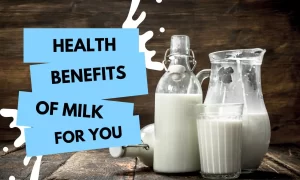In the summer season, drinking cold drinks provides a lot of relief. But do you know whether cold drinks are good for your health or not? Some cold drinks, such as water, coconut water, lemon water, etc., are healthy. These drinks provide freshness and energy. They help in regulating your body temperature and provide relief from the heat. Consuming them also helps in fulfilling the deficiency of vitamins and minerals in your body. On the other hand, some cold drinks like carbonated drinks, sherbets, etc., are harmful. In this article, we will discuss the benefits and drawbacks of drinking cold drinks. We will talk about whether cold drinks are more beneficial for keeping you cool or if they harm you. So let’s find out how good cold drinks are for our health.

How are Cold Drinks Made?
Cold drinks, also known as cool beverages or soda, are carbonated beverage substances that come in various flavors. Here is a general overview of how they are usually made:
Carbonation:
The first step in making a cold drink is carbonating it. Carbon dioxide gas is dissolved in water under pressure to give it its specific fizziness.
Flavor:
After carbonation, the beverage is flavored with various ingredients to obtain the desired taste. The specific ingredients giving flavor vary widely based on the brand and type of beverage. Common flavors include fruit extracts, artificial flavors, sweetness, and spices.
Sweetness:
Most cold drinks contain some form of sweetness to bring a sweet taste. Depending on the type of beverage and dietary considerations, this may include sugar, high fructose corn syrup, or artificial sweeteners.
Preservatives and additives:
Preservatives and additives are often added to extend shelf life and maintain the stability of the beverage. These may include acidity regulators, food colors, and stabilizers.
Water:
Water is a major constituent in cold drinks, and it is typically treated to ensure purity and quality for safety.
Mixing and quality control: Various ingredients are mixed together in precise ratios to achieve the desired taste and stability. Quality control measures are taken to ensure that the final product meets brand standards.
Packaging:
Once the cold drink is prepared, it is usually packaged in cans or bottles, often under pressure to maintain carbonation. Labels and branding are applied to the packaging, and the beverages are ready for distribution and sale.

Benefits of Drinking Cold Drinks
Drinking cold drinks, such as cold water, iced tea, or other cold beverages, has several benefits:
Temperature regulation:
Cold drinks help in cooling down your body temperature, which is particularly beneficial in hot weather or after physical activity.
Relief from thirst:
When you’re thirsty, a cold drink provides immediate relief and a refreshing sensation.
Refreshing:
Cold temperature is invigorating and instantly boosts energy, making it a preferred choice for some people.
Improved exercise performance:
Drinking cold drinks during physical activities helps regulate body temperature and prevent overheating.
Taste and enjoyment:
Many people find cold drinks more enjoyable, encouraging them to consume more liquid and stay hydrated.

Drawbacks of Drinking Cold Drinks
Drinking too many cold drinks, especially those that are sweetened or carbonated, can have various effects on your body. Drinking cold drinks like soda or iced beverages can have many drawbacks. Here are some potential consequences of excessive cold drink consumption:
Weight gain:
Many cold drinks contain high amounts of sugar and calories, leading to weight gain when consumed in excess. Sugary beverages contribute to empty calories, leading to obesity and related health issues.
Tooth decay:
Sugar-laden and acidic cold drinks can erode tooth enamel and cause cavities. The combination of sugar and acidity is particularly harmful to dental health.
Digestive issues:
Very cold beverages can shock your digestive system and potentially slow down digestion, leading to discomfort, bloating, and indigestion.
Dehydration:
Some cold drinks can dehydrate you. This is because some beverage compounds, such as caffeine and sugar, act as diuretics, causing your body to lose more fluid than it takes in.
Increased risk of diabetes:
Regular consumption of sugary cold drinks can increase the risk of type 2 diabetes due to their impact on blood sugar levels.
Bone health:
Excessive consumption of cola-type cold drinks can decrease bone density due to the high levels of phosphoric acid in these beverages.
Increased risk of heart disease:
Excessive intake of sweetened cold drinks can increase the risk of heart disease and high blood pressure.
Kidney stones:
Some cold drinks contain compounds that contribute to the formation of kidney stones in susceptible individuals.
Fatty liver:
Fructose in sweetened cold drinks is converted into fat in the liver, potentially leading to non-alcoholic fatty liver disease (NAFLD).
Caffeine dependence:
Many cold drinks, such as cola and some iced teas, contain caffeine. Dependence on caffeine and withdrawal symptoms can occur with excessive consumption.
Empty calories:
Cold drinks provide very few or no nutritional value and are often referred to as “empty calories” because they do not provide essential nutrients in the diet.
Gastrointestinal discomfort:
Drinking too many cold drinks can sometimes cause gastrointestinal discomfort, such as bloating, gas, and cramping.
Conclusion
In this article, we learned that if cold drinks are consumed in moderation and with caution, they can be beneficial for you. Along with their benefits, there are also some drawbacks to excessive consumption. We have discussed in detail the benefits and drawbacks of cold drinks and what happens when you drink too many cold drinks.
Additionally, individual reactions to cold drinks vary, so it is important to listen to your body and its specific reactions. If you are concerned about the effects of your cold drink consumption on your health, consulting a doctor is advisable.















